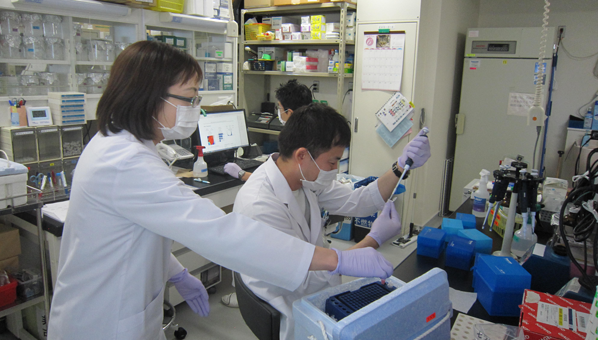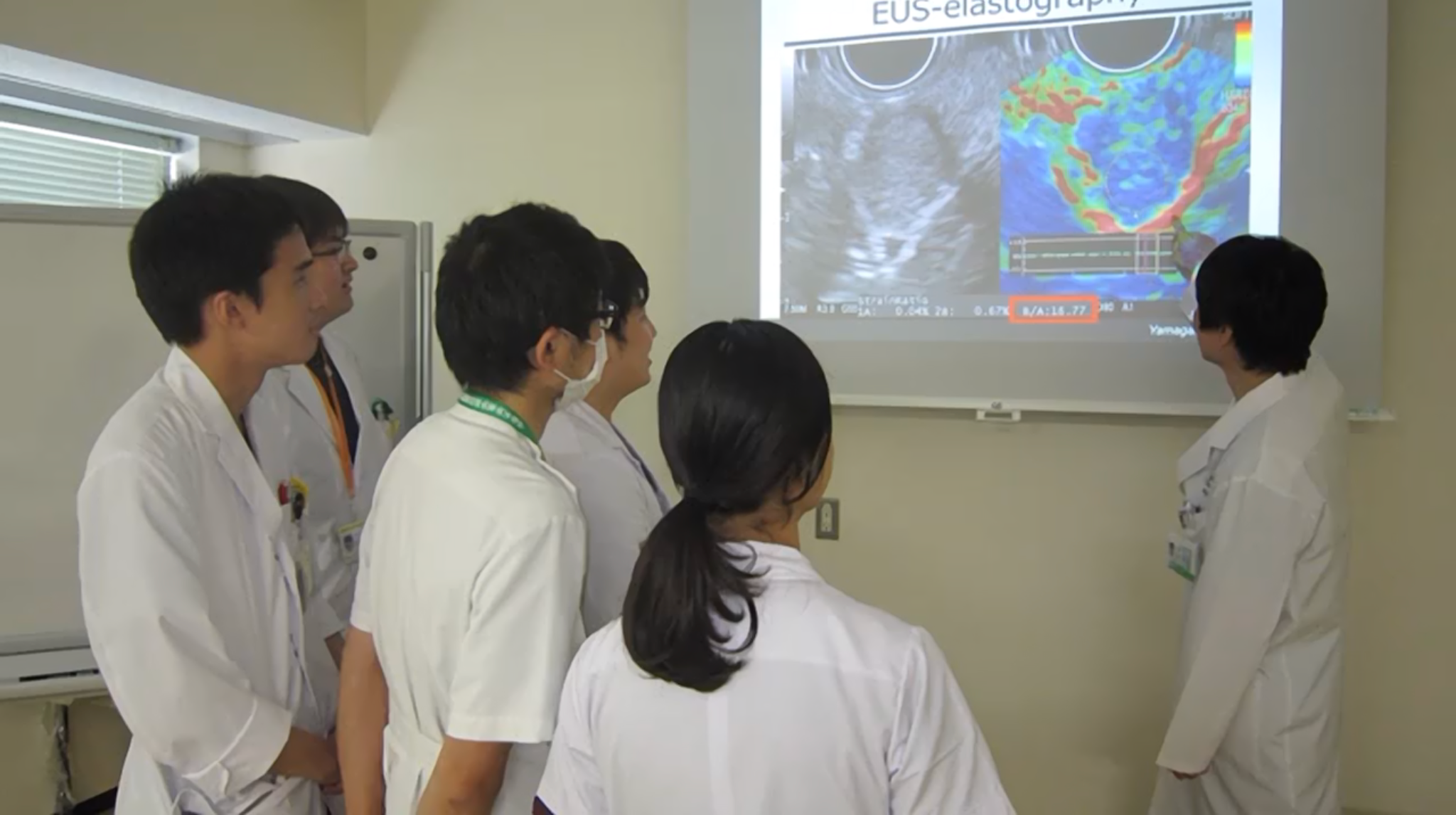







Home > Research > Research Overview > 2017 > Faculty of Medicine
Professor of Gastroenterology
Yoshiyuki Ueno

Organisms have systems for maintaining life. Homeostasis is a fundamental system to maintain the stability of life. Homeostasis is the kind of system that prevents us from being easily affected, for example, by the day’s weather condition. “Eating” is part of an important system of animals for absorbing essential nutrients from outside. We humans cannot ultimately stay alive if we cannot get nutrition from outside our bodies. Our digestive system carries out the important function of “digestion” and “absorption.” In that sense, it plays an important role in homeostasis.

Various disorders arise when homeostatic mechanisms become corrupted. For example, if cells grow and divide more than required and in an uncontrolled manner, they become cancers. If the body is unable to appropriately control bacteria or viruses that have entered, it can result in infections. Infections can lead to disorders such as Helicobacter pylori-related gastritis, bacterial colitis and viral hepatitis. Some infections can bring about refractory cancer as a result of chronic inflammation. Typical examples of an autoimmune digestive disorder are ulcerative colitis and autoimmune hepatitis. Both are in the Ministry of Health, Labour and Welfare’s list of “designated intractable diseases” as disorders that lack effective treatment. The Department of Gastroenterology carries out research particularly in relation to cancer and refractory diseases of the digestive system. Research emphasizes endeavors to clarify, as much as possible, those matters that are not currently understood in today’s medicine, and to lead it to clinical application that will change the medical care of tomorrow.

We are carrying out research on hepatic regenerative medicine and biliary diseases. Both have progressed to a point that is nearly ready for human application. We are also focusing efforts on research related to intestinal flora, as it is becoming clear that the bacteria in the intestinal tract plays a large role in the digestion and absorption that takes place in the human digestive system.
Our department also proactively supports young researchers. Our hope is to disseminate world-level research results by fostering researchers.